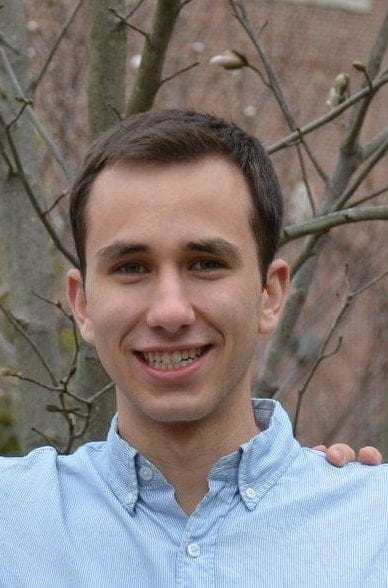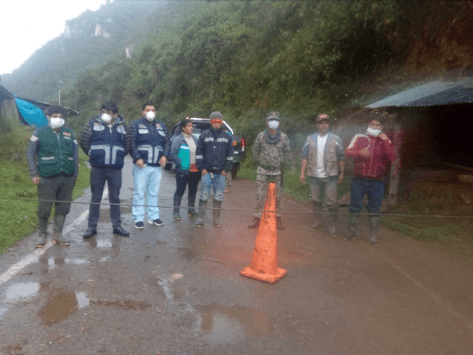
About the Author
Lucas Fried is a rising senior studying Public Policy and Economics at Brown University. His primary interest is in housing and education systems, which has led him to work with teachers in northern Peru and study in Cuba at the University of Havana. He wrote this article for Stephen Kinzer’s “International Journalism: Foreign Reporting in Practice” course at Brown.
With Memories of Terrorism, Peru Embraces Strict Rule of Law to Fight Covid-19
Late on the night of April 15, a farmer in the Peruvian highlands ran back to town seeking help to rescue his fallen cow. Along the road, members of the town militia out enforcing curfew caught him. Though the patrol pardoned the desperate farmer, many who left home that night were less fortunate.
Those breaking Peru’s curfew put in place to fight Covid-19 face a 24-hour arrest. Fifty-two thousand Peruvians had been arrested as of April 7, according to President Martín Vizcarra.
Across the globe, Vizcarra and Peru have been praised for their early and broad-reaching response to Covid-19. While it is still unclear whether the spread of the virus has been controlled, Peruvians are almost unanimous in their support of the crackdown. A recent poll showed 95 percent approval of the government’s handling of the disease.
“Saving a cow’s life, this is something that you can forgive,” Sinecio Garro, 53, a citizen volunteer patrolling that night, said. “But there are people who leave their house just for the heck of it to walk around. That can’t happen.”
In Garro’s town of Leymebamba, home to 3,000 inhabitants in Peru’s remote northern Andes, the stay at home order begins at 4 p.m. every afternoon. The town’s location as a throughway to the region has led it to extend the hours of Peru’s nationwide curfew, normally 6 p.m. to 4 a.m.
The curfew began on March 15, when President Vizcarra declared a state of emergency with just 71 confirmed cases in the country. Those not working essential jobs may only leave home for food or medicine, among a short list of other acceptable activities. In recent weeks, Vizcarra has limited movement by gender: women and girls to Tuesday, Thursday and Saturday; men and boys on Monday, Wednesday and Friday. Police can fine or anyone without essential duties who ventures outside on Sundays.
Lockdown has led many Peruvians to face desperate economic situations. In the first days of quarantine, the military and police had to barricade bus stops to prevent residents in Lima, the capital, from traveling to work. Emergency cash transfers that the government promised to three million of Peru’s poorest families have only reached some, according to Garro.
Even with their basic needs in doubt, many Peruvians don’t question such strict measures. Garro believes that the country’s ability to weather quarantine stems in part from its recent past.
His generation lived through the 1992 state of emergency, when strongman president Alberto Fujimori called the armed forces to the streets to wipe out both political opponents and left-wing militant groups. Though the measures were harsh, he believes Peruvians became accustomed to sacrifice freedom in order to stabilize the country. Today, they have again rallied around law and order.
During the fall of 1992, the Shining Path militant group fought law enforcement just miles from Leymebamba. Garro remembers his father sitting awake each night near the door, ready to alert the family in case the guerillas arrived. Many neighbors did the same.
“We didn’t leave the house out of fear at night,” Garro recalled. “We endured that too, and we know how to comply with the rules of this curfew.”
As the Shining Path passed through the northern highlands to the nearby city of Cajamarca, farmers formed local militias for self defense. The model has spread throughout the region in the decades since. In Leymebamba and surrounding towns, the militias are now the first enforcers of Covid-19 regulations.
Violence hit cities like Lima especially hard, where nearly anyone over thirty has memories of the last lockdown. Lima native Daniel Fernández, 49, remembers each family in his neighborhood criss-crossing their front windows with tape to catch the shards of glass in case a car bomb exploded on the street.
“Like there’s no toilet paper now, there was no clear tape during that state of emergency,” Fernández said. “You survive everyday. Fear is already ingrained in every part of the survival of a community in Peru.”
The situation in the streets reflects the past, but breaking with history has helped the current president gain trust in his bold measures. Many see Vizcarra as the man who pulled the country from the corruption and repression of the Fujimori political dynasty.
While Fujimori serves 25 years in prison for human right violations, his daughter, leader of the opposition party, was accused of taking bribes from Brazilian construction giant Odebrecht, along with every single successive president the country elected.
“Vizcarra is so good, it’s obvious we didn’t vote for him,” goes the joke in Peru today. He was vice-president when the impeachment of President Pedro Pablo Kuczynski on bribery charges thrust him into power. Declaring Peruvians were done with corruption, he dissolved Congress when they resisted his reforms. Many took to the streets to show their approval of the unconstitutional move.
Unlike elite politicians before him, Peruvians see Vizcarra as worthy of their trust. “He’s clean, he doesn’t have big money connections,” Fernández, an anthropologist, said. “He is humble and direct.”
So far, his pandemic measures have been delivered with clarity. In the first week of Peru’s response, he closed borders, replaced his health minister with an expert in infectious diseases, and named regions and local authorities who disregarded quarantine.
The speeches sent his popularity skyrocketing. Recent polls show his approval rating at 87 percent.
“In weeks, I almost never heard anyone say anything bad about the government,” said Dylan Baddour, a U.S. freelance journalist who was trapped in Peru by the travel restrictions. “Vizcarra’s attitude quickly rubbed off on those who thought the restrictions had gone too far.”
“It’s a wartime feeling, where patriotism is on full display,” Baddour said in a phone interview.
Marked with the stress of decades of internal conflict, Peruvian society has joined Vizcarra against what he calls today’s invisible enemy. After curfew begins each night, citizens take to their balconies to clap for frontline workers, now a tradition across the globe. Unlike many other countries, though, the applause is directed in part at the police and military, standing ready to arrest any citizen who would descend to the streets to join them.
More Student Views
Puerto Rico’s Act 60: More Than Economics, a Human Rights Issue
For my senior research analysis project, I chose to examine Puerto Rico’s Act 60 policy. To gain a personal perspective on its impact, I interviewed Nyia Chusan, a Puerto Rican graduate student at Virginia Commonwealth University, who shared her experiences of how gentrification has changed her island:
Beyond Presence: Building Kichwa Community at Harvard
I recently had the pleasure of reuniting with Américo Mendoza-Mori, current assistant professor at St Olaf’s College, at my current institution and alma mater, the University of Wisconsin-Madison. Professor Mendoza-Mori, who was invited to Madison by the university’s Latin American, Caribbean, and Iberian Studies Program, shared how Indigenous languages and knowledges can reshape the ways universities teach, research and engage with communities, both local and abroad.
Of Salamanders and Spirits
I probably could’ve chosen a better day to visit the CIIDIR-IPN for the first time. It was the last week of September and the city had come to a full stop. Citizens barricaded the streets with tarps and plastic chairs, and protest banners covered the walls of the Edificio de Gobierno del Estado de Oaxaca, all demanding fair wages for the state’s educators. It was my first (but certainly not my last) encounter with the fierce political activism that Oaxaca is known for.





